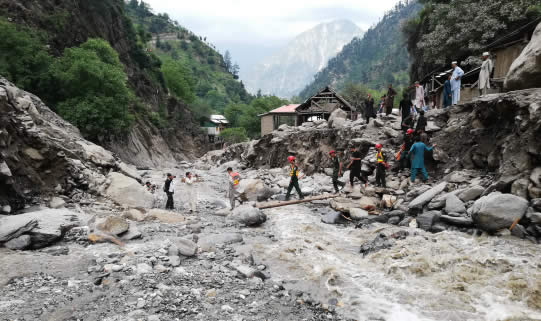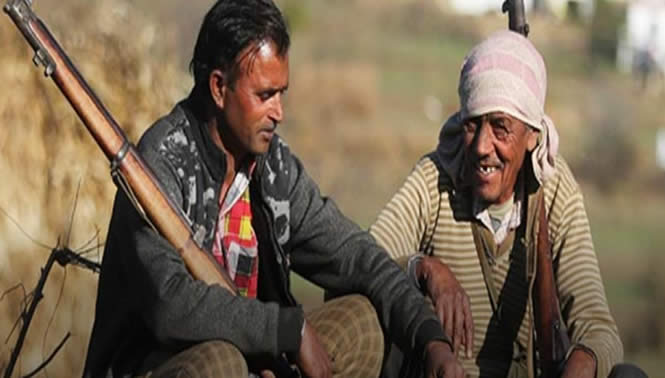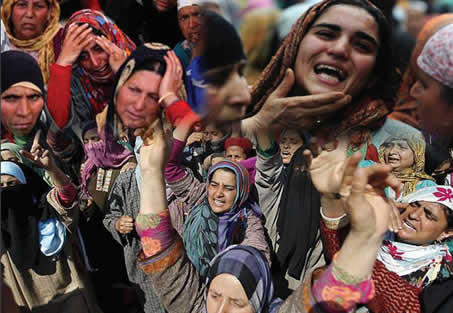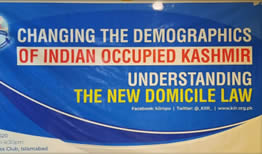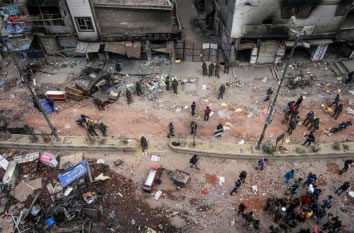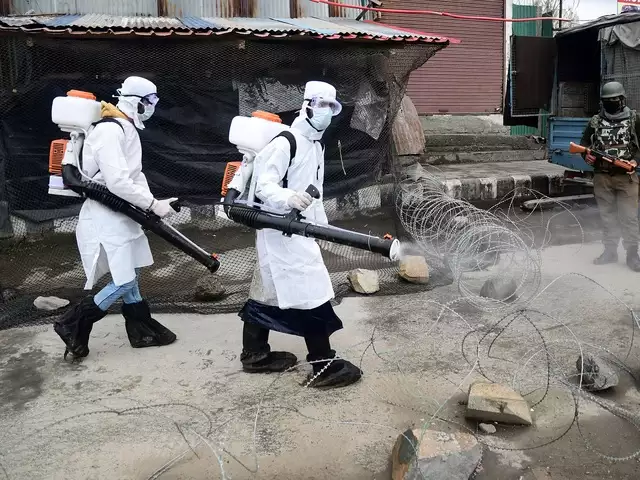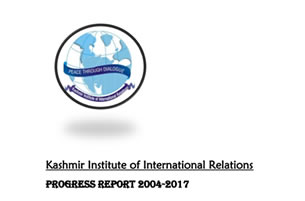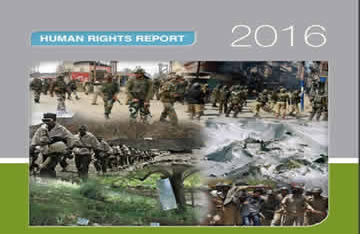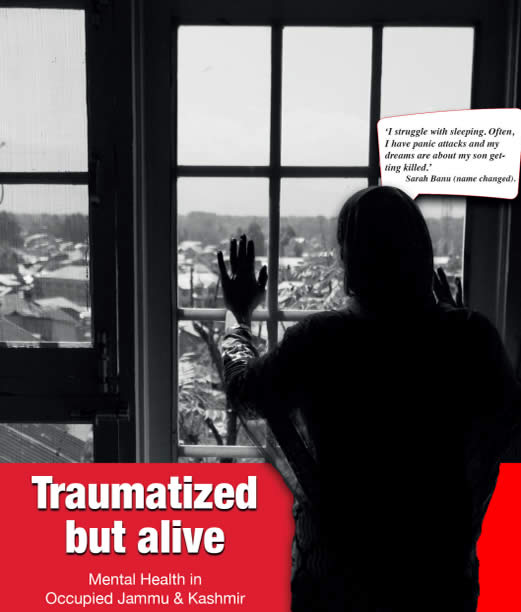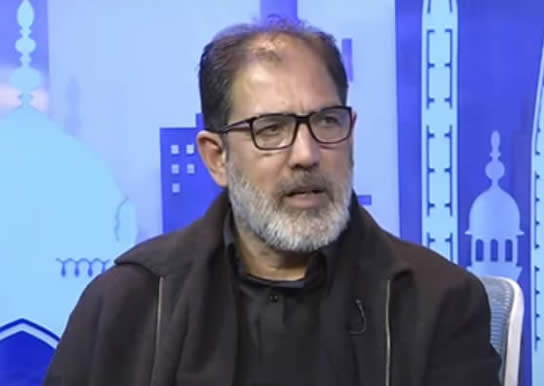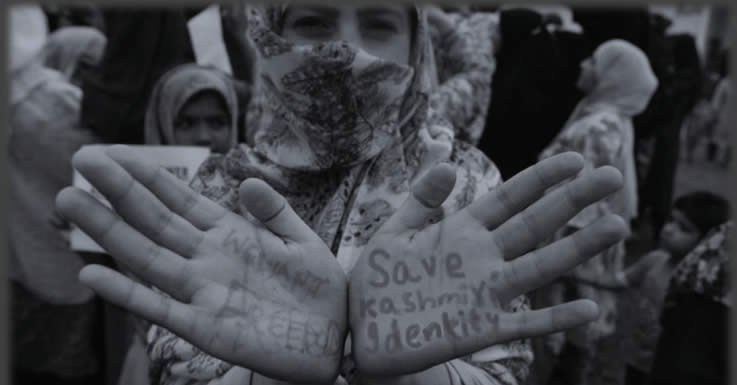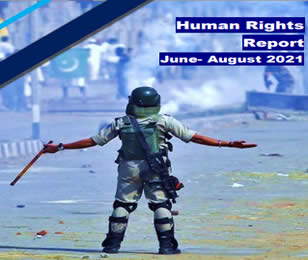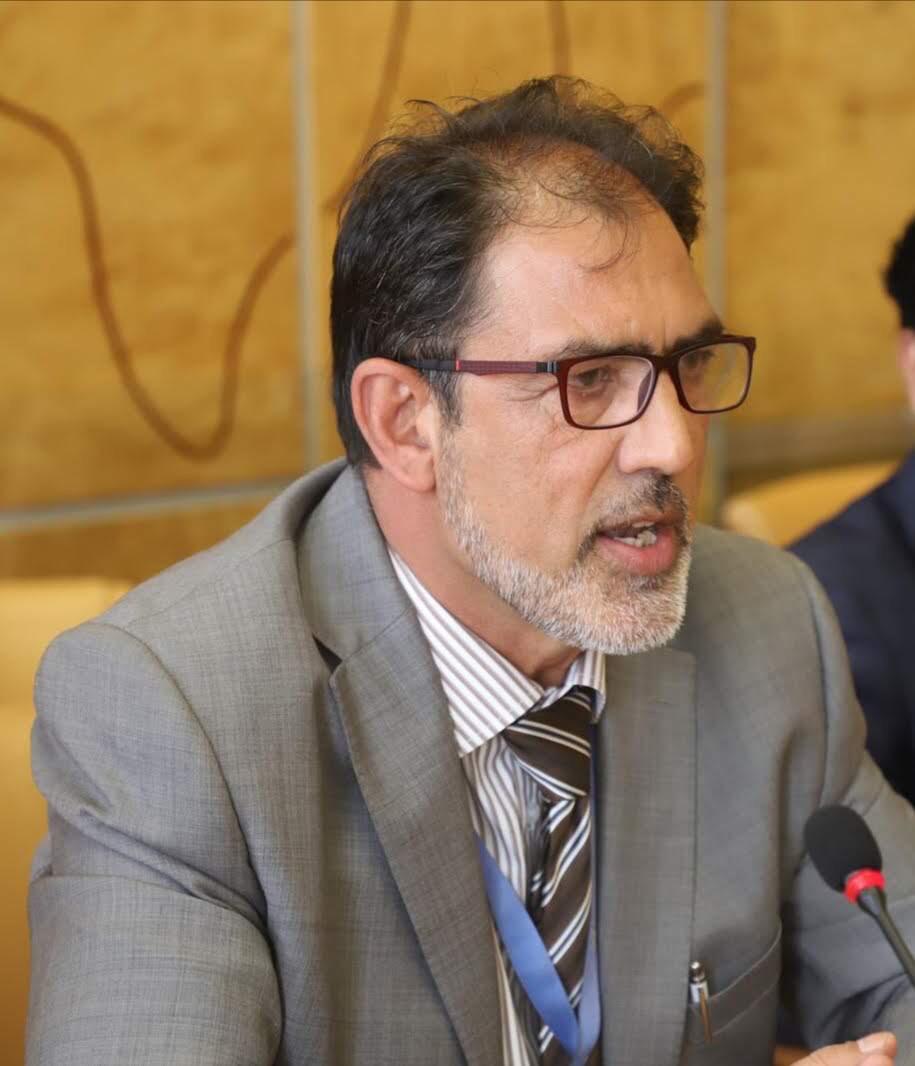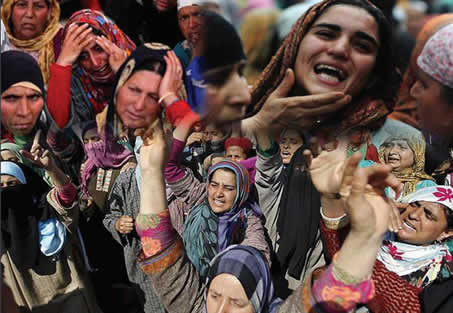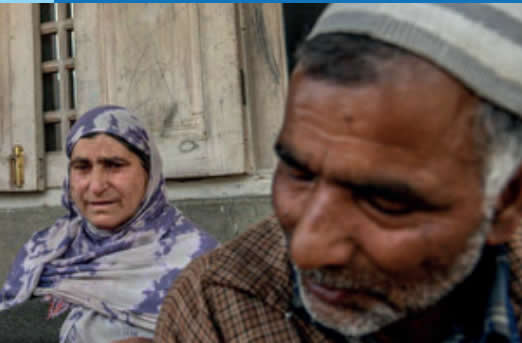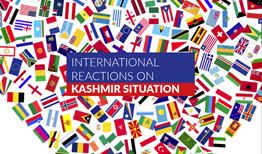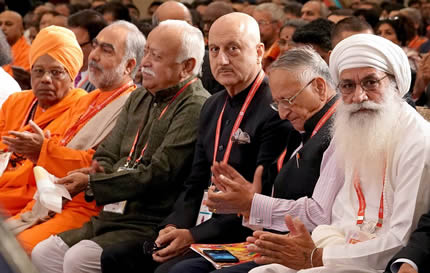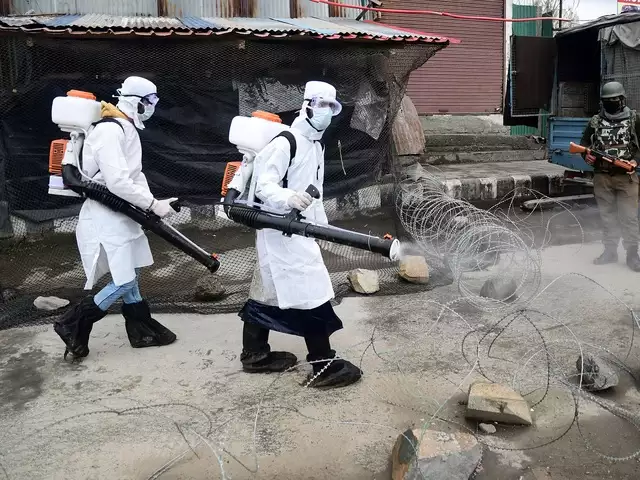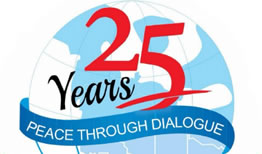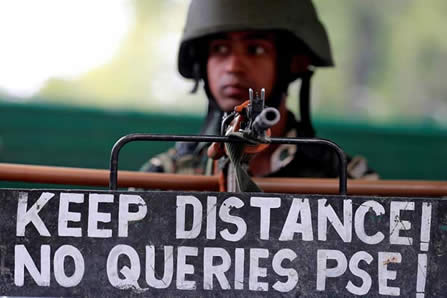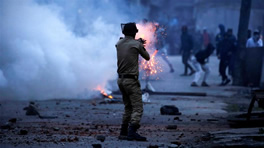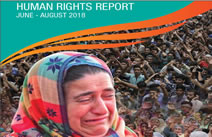India’s land rights violations in Kashmir
First name: Maria Vittoria
Last name: Scarcello
Education: Global Law and Transnational legal studies (third year)
University: University of Turin, Italy
Date: 16/03/25
Review of the report
“Your land is our land: India’s land rights violations in Kashmir”
Title of the report: “Your land is our land: India’s land rights violations in Kashmir”
Author: FIDH
Date of publication: October 2024
Introduction
The report “Your land is our land: India’s land rights violations in Kashmir” was produced and published in October 2024 by FIDH, an international human rights NGOwhich takes action for the protection of victims of human rights violations, for the prevention of further abuses and to bring perpetrators to justice. This comprehensive report sheds light on the ongoing land rights violations in Jammu & Kashmir. Under the leadership of Prime Minister Narendra Modi and the ruling Bharatiya Janata Party (BJP), India has experienced a sharp rise in human rights violations.
Driven by a Hindu nationalist agenda, Modi’s government has pursued policies that have substantially undermined human rights protections, eroded the independence of various institutions, and targeted minority communities, particularly Muslims. In this repressive context, Jammu & Kashmir autonomy and special status was stripped away without any consultation on 5 August 2019. The special status of Jammu & Kashmir had been protected by Articles 370 and 35A of the Indian Constitution since 1950. These constitutional provisions had been a fundamental part of Jammu & Kashmir’s relationship with India and were instrumental in protecting the land rights of its residents.
The revocation of Jammu & Kashmir’s special status was followed by the reorganization of the region, which was split into two union territories – Jammu & Kashmir and Ladakh – both now directly controlled by the Indian government. This drastic shift was accompanied by the issuing of numerous executive orders concerning Jammu & Kashmir, which led to the amendment or repeal of more than 400 laws, including the reversal of progressive land reforms that had distributed acres of land to landless farmers.
Methodology of the report
The report is grounded in a comprehensive analysis of both primary and secondary sources, employing qualitative research methods that included interviews and desk research to ensure a thorough and nuanced understanding of land rights violations in Jammy & Kashmir. Desk research involved a detailed examination of primary sources (including the laws applicable to Jammu & Kashmir before and after August 2019) and secondary sources (including news reports from local, national, and international media, and academic literature).
In addition, the report draws on data collected by prominent Kashmiri advocacy groups which have been instrumental in gathering first-hand information, thus providing a more direct account of the situation in the region. It is important to note that the scope of this report is limited to the legal framework and human rights violations relating to the Jammu & Kashmir Union Territory, explicitly excluding the Ladakh Union Territory from its analysis. This focus enables a more concentrated examination of the specific issues that have arisen in the aftermath of the region’s reorganization and the revocation of its special status.
The underlying assumption of this report is the recognition of the right to land as a fundamental right. Indeed, while the right to land is not explicitly codified under international law, it is increasingly acknowledged within various soft law instruments as an essential element for the realization of a range of other human rights, including the right to housing, food security, and cultural integrity.
Key findings of the report
The report provides an in-depth analysis of the legal, socio-economic, and political consequences resulting from the abrogation of Jammu & Kashmir’s special status, focusing specifically on its impact on land-related laws. One of the central justifications provided by the BJP-led government for revoking Jammu & Kashmir’s special status was the claim that the region’s development had been hindered by its unique legal framework. However, the report challenges this justification, arguing that the legal reforms enacted since August 2019 have primarily served to ease the procedures for the Indian Government to confiscate land and to reallocate it for large-scale infrastructure and investment projects. These reforms, while purportedly aimed at promoting development, have significant human rights and environmental consequences for the region.
In conjunction with these legal changes, the Indian government extended various executive orders to Jammu & Kashmir – laws that are often criticised for their weak human rights and environmental protections. The imposition of such laws has undermined the protections afforded to the people of Jammu & Kashmir, particularly in relation to land rights. For instance, in January 2023, the Jammu & Kashmir administration launched a campaign to confiscate land equivalent to roughly the size of Hong Kong, which it claimed had been “illegally encroached” upon in Jammu & Kashmir. This “anti-encroachment” drive led to evictions, destruction of property, and land confiscation that affected thousands of Kashmiris in violation of international human rights laws and standards.
Moreover, the repeal or amendment of many of Jammu & Kashmir’s land laws have also led to evictions and land confiscation to expand military presence in Jammu & Kashmir. Further compounding the issue, the report highlights that the legal changes to land laws have disproportionately affected indigenous and nomadic communities in Jammu & Kashmir. In addition, the report draws attention to the expansion of religious tourism in Jammu & Kashmir, which has been promoted since August 2019. While tourism has been presented as an economic development opportunity, the report finds that it has generated considerable environmental degradation and limited economic benefits to residents. Another particularly concerning finding in the report is that the revision of various land laws has created a legal framework that allows all Indian citizens to purchase land in Jammu & Kashmir. These legal changes have also broadened the criteria for Indian citizens to become permanent residents of the region, thereby rendering them eligible to purchase land, apply for jobs, and exercise electoral rights in Jammu & Kashmir.
Such developments raised concerns over the potentially significant alterations to Jammu & Kashmir’s demographic composition, with severe ramifications for the socio-economic and political rights of Kashmiris. Finally, the report documents the increased repression of civic space and violations of human rights that have taken place in Jammu & Kashmir since August 2019. Five years after the abrogation of statehood, the human rights situation in Jammu & Kashmir has dramatically worsened. Authorities have intensified their efforts to criminalize members of civil society, leading to increased surveillance and monitoring, raids on offices and homes of human rights groups and media organizations, and imposing severe restrictions on freedom of movement. The report highlights that Kashmiri human rights defenders and independent journalists have been subjected to frequent harassment, including arbitrary arrests and detentions under draconian counter-terrorism legislation.
Recommendations of the report
The most critical section of the report centres on its recommendations, which are specifically directed towards the Indian government, the European Union (EU), and the UN Human Rights Council. These recommendations serve as a comprehensive pathway to ensure the protection and respect of fundamental rights and freedoms in Jammu & Kashmir.
To the Indian Government
The report urges the Indian government to uphold its international human rights obligations in Jammu & Kashmir. Central to these recommendations is the call for the Indian government to respect the right of the Kashmir people to self-determination, as enshrined in Article 1 of the International Covenant on Civil and Political Rights (ICCPR). Furthermore, the report emphasizes the necessity of safeguarding the fundamental rights of Kashmiris to freedom of opinion and expression, freedom of peaceful assembly, freedom of association, and freedom of movement, as provided under the ICCPR.
In addition, the report stresses the importance of guaranteeing the right to an adequate standard of living for all residents of Jammu & Kashmir, in alignment with Article 11 of the International Covenant on Economic, Social and Cultural Rights (ICESCR). On the issue of land rights, the report calls for the immediate restoration and protection of the land rights that existed in Jammu & Kashmir prior to the abrogation of its special status in August 2019.
To the European Union (EU) and its Member States
The report also directs a series of recommendations to the European Union and its Member States, urging them to publicly express unwavering support for the rights of the Kashmiri people and their fundamental freedoms.
To the UN Human Rights Council and its Member States
The report further calls upon the UN Human Rights Council (UNHRC) and its Member States to provide a mandate to the Office of the High Commissioner for Human Rights (OHCHR) to regularly report on human rights violations in Jammu & Kashmir to the UN Human Rights Council, and ensure that OHCHR is given sufficient resources to do so. Additionally, the report urges the UNHRC to press the Indian government to allow immediate and unfettered access to OHCHR to Jammu & Kashmir, and to fully cooperate with UN Special Procedures, including by allowing mandate holders to visit Jammu & Kashmir and implementing the recommendations made thereafter. The report also advocated for the establishment of an independent investigative mechanism to monitor human rights violations and promote accountability in Jammu & Kashmir.
Conclusion.
In conclusion, the report “Your land is our land: India’s land rights violations in Kashmir” is a thoroughly researched and well-structured document that provides valuable insights into the ongoing human rights and land right violations in Jammu & Kashmir. Its detailed analysis of the legal, socio-economic, and political consequences of the revocation of Jammu & Kashmir special status is both informative and critical. The recommendations presented offer a clear and practical pathway towards the restoration of fundamental rights and freedoms for the Kashmiri people
Related Reports



























